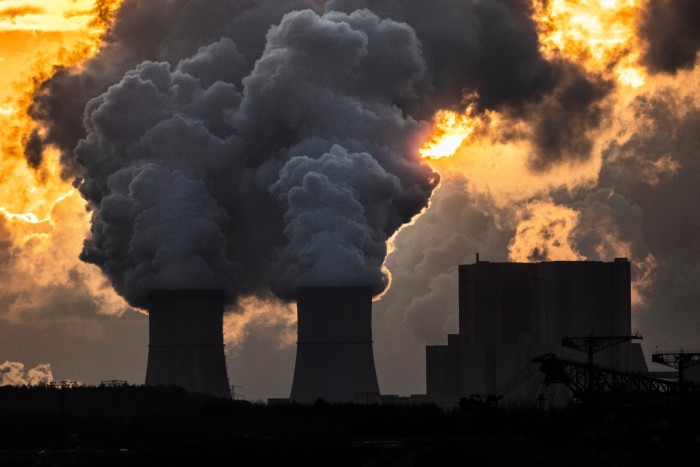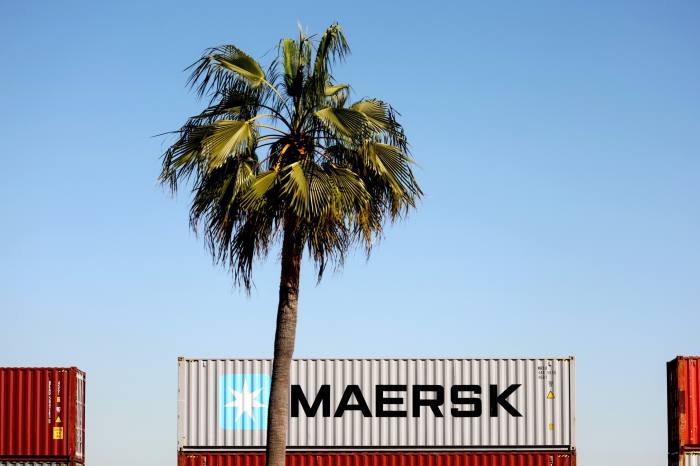
Why 2023 might just be a turning point for climate action

We’ll send you a myFT Daily Digest email rounding up the latest Climate change news every morning.
 Crackdown on ambiguous claims: the UN now says any business with a 2050 net zero emissions pledge ought to have a transition plan with “credible and ambitious targets for 2025 and 2030” © Florian Gaertner/Photothek via Getty Images
Crackdown on ambiguous claims: the UN now says any business with a 2050 net zero emissions pledge ought to have a transition plan with “credible and ambitious targets for 2025 and 2030” © Florian Gaertner/Photothek via Getty ImagesBarring surprise developments, 2023 will be the first year of the 21st century when no G7 country has a general or presidential election.
With luck, this period of relative political calm will also help to make 2023 a turning point in efforts to tackle one of the great dilemmas of our age: climate change.
There are gathering signs that the meaningful government climate action that has long been missing from the drive for net zero emissions will start to take shape this year.
It is not before time. Nearly five years have passed since a groundbreaking UN report showed carbon dioxide emissions must nearly halve by 2030, and reach net zero by around 2050, to meet the Paris agreement goal of limiting global warming to 1.5C.
This was always going to be monumentally difficult. Nearly 90 per cent of CO₂ emissions come from fossil fuels that supply close to 80 per cent of the world’s energy.
Still, the report triggered an outpouring of net zero commitments that today have been made by at least 132 countries and by more than 820 of the 2,000 largest listed companies.
Alas, there have been virtually no rules to govern this eruption of pledges. A company could promise to become net zero by 2050 without saying what it would do in any year before then. Or it could have a plan to offset its emissions with carbon credits based on saving a patch of forest on the other side of the world. Or it could devise a net zero target for the speck of emissions it produced at its own offices or factories, but not for the far larger share of pollution driven by its products and suppliers.
 Proof required: of 24 companies assessed for their climate strategies, only one (Maersk) showed ‘reasonable integrity’ © Mario Tama/Getty Images
Proof required: of 24 companies assessed for their climate strategies, only one (Maersk) showed ‘reasonable integrity’ © Mario Tama/Getty Images The result of this unruly situation was spelt out in February in a stinging assessment of the climate strategies of 24 global companies, carried out by environmental groups. It found that just one — Denmark’s Maersk container shipping group — had “reasonable integrity”.
Most companies had vague, “highly ambiguous” net zero targets that did not represent “a commitment to deep decarbonisation”. And the same could be said for many national governments.
But change is afoot, not least in the world’s largest economy. Last year’s US Inflation Reduction Act is the most important climate action in American history. It contains billions of dollars of tax credits for clean energy and low-carbon technologies over the next decade and — crucially — it is spurring action elsewhere.
The European Union this year unveiled a “green deal industrial plan” that includes a “net zero industry act” and other measures aimed at incentivising and fast-tracking clean energy projects across the bloc.
This wave of green industrial policy has also sparked transatlantic trade tensions. However, assuming these can be managed, efforts to bring net zero plans to life could be transformed. For example, a steelmaker or an airline has a far better chance of meeting its climate goals in a country boosting the development of green steel or sustainable aviation fuel.
This net zero push should also be bolstered by reporting and regulatory measures due to be launched or implemented this year.
New EU directives — one that entered into force in January and another being finalised — are set to tighten the way companies operating in the region adopt and report on climate transition plans.
In the US, the Securities and Exchange Commission is due to finalise separate climate disclosure rules in coming months.
Also, the first set of global climate reporting standards is due to be published in June by a board established by the International Financial Reporting Standards Foundation.
Meanwhile, financial regulators around the world are cracking down on corporate greenwashing with growing vigour. Expect to see more of the same as investors and green campaigners alike press for such action.
“Regulators are stepping up because there is demand on the ground,” says Christina Ng of the Institute for Energy Economics and Financial Analysis.
Climate Capital
Where climate change meets business, markets and politics. Explore the FT’s coverage here.
Are you curious about the FT’s environmental sustainability commitments? Find out more about our science-based targets here
The UN has added its weight too. Earlier this month, its secretary-general, António Guterres, said that any business with a 2050 net zero pledge ought to have a transition plan in place by September, containing “credible and ambitious targets for 2025 and 2030”.
Those targets should, he added, meet standards devised by a UN expert group which has specified that companies should, for example, cut their own emissions, rather than offset them with “cheap credits that often lack integrity”.
Separately, the International Organization for Standardisation has issued guidelines for organisations setting net zero targets that should help stamp out misleading claims about supposedly green products.
Researchers who monitor net zero pledges caution that more action is needed. As Oxford university’s Professor Tom Hale says, “We’ve made good progress in defining what good looks like. Now we need to do it.”
Still, 2023 is set to be a year remembered for progress in climate action that will end up being impossible to ignore.
Video: Falling wind speeds could affect green energy strategy | FT Rethink {"focus":["1b959981-b258-4517-bf8c-0b32f31aecea","24ad2c58-14fb-4217-b6f7-7ef88ac51375","29e67a92-a3b8-410c-9139-15abe9b47e12","5216ff2e-a6ed-42b2-a613-109fc6491ba2","668edaf2-4cf1-4afe-9a3f-c81bf8d239a8","bfca2434-2d19-4d87-b9c4-ea5a7d045a70","6da31a37-691f-4908-896f-2829ebe2309e","2e7429bd-7a84-41cb-a619-2c702893e359","67fb70ae-b970-4bd1-92ea-761618ae8cb7","82645c31-4426-4ef5-99c9-9df6e0940c00","c47f4dfc-6879-4e95-accf-ca8cbe6a1f69","ec4ffdac-4f55-4b7a-b529-7d1e3e9f150c"],"authorConcepts":["5d9fa8f8-3456-4cb5-b042-2a890d46211c"],"displayConcept":"24ad2c58-14fb-4217-b6f7-7ef88ac51375"}Copyright The Financial Times Limited 2023. All rights reserved.Reuse this content (opens in new window) CommentsJump to comments sectionPromoted ContentExplore the Special ReportREAD MORERoad to Net ZeroGreen subsidies lift wind industry’s longer term prospects
- Currently reading:Why 2023 might just be a turning point for climate action
- Solar set to overtake other energy sources by 2027
- Calls for clearer communication to cultivate greener consumers
- Mark Carney’s green alliance rides out stormy waters
- Green subsidies lift wind industry’s longer term prospects
- How the UK’s electoral system holds back green groups
- US-Europe trade tensions heat up over green subsidies
- Pilita Clark Add to myFT
- Climate change Add to myFT
- Global Economy Add to myFT
- Energy sector Add to myFT
- Pollution Add to myFT
Owl Media Group takes pride in providing social-first platforms which equally benefit and facilitate engagement between businesses and consumers and creating much-needed balance to make conducting business, easier, safer, faster and better. The vision behind every platform in the Owl Media suite is to make lives better and foster a healthy environment in which parties can conduct business efficiently. Facilitating free and fair business relationships is crucial for any thriving economy and Owl Media bridges the gap and open doors for transparent and successful transacting. No advertising funds influence the functionality of our media platforms because we value authenticity and never compromise on quality no matter how lucrative the offers from advertisers may seem.
Originally posted on: https://www.ft.com/content/07976045-983e-4df3-b2dd-30c264fbe928